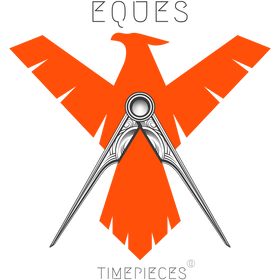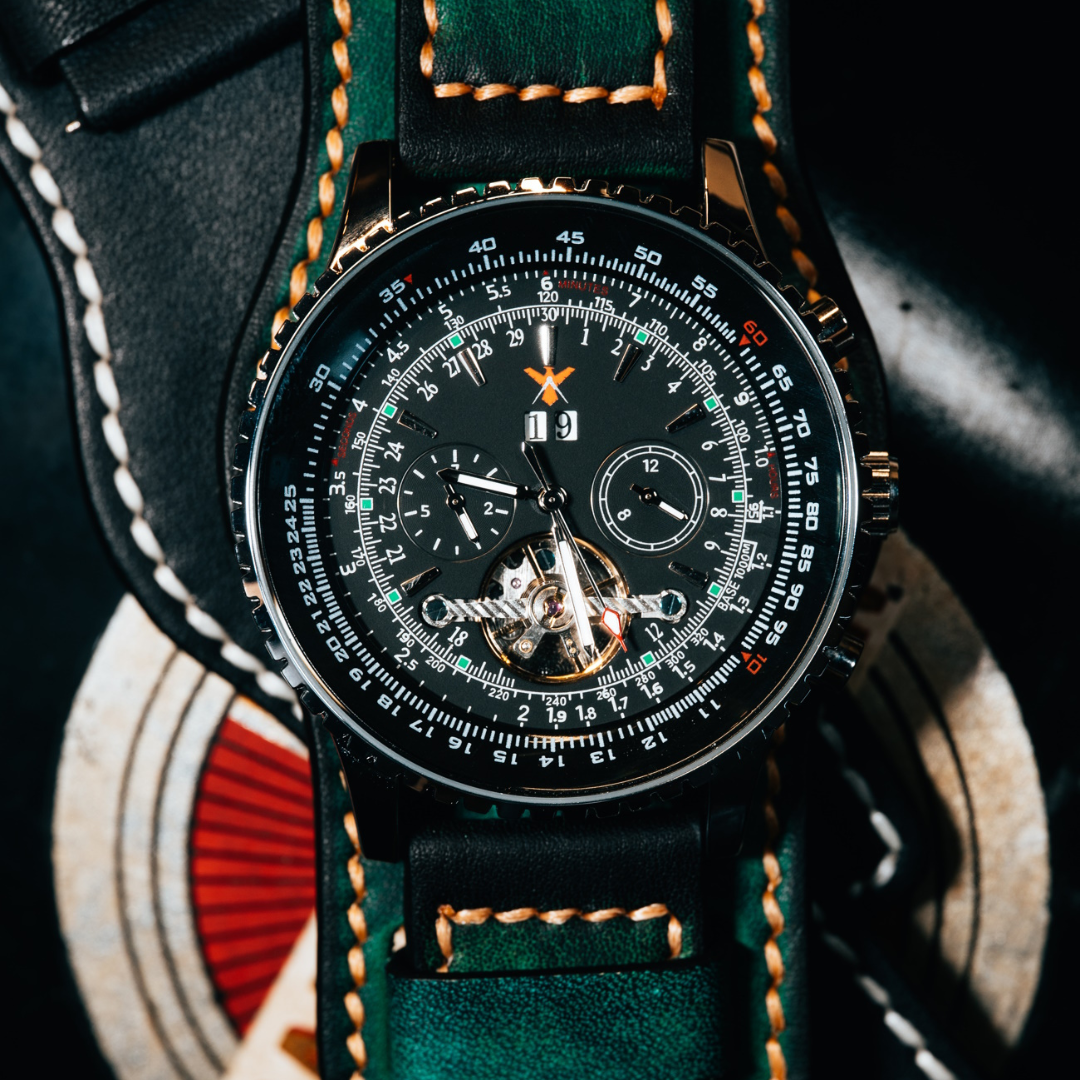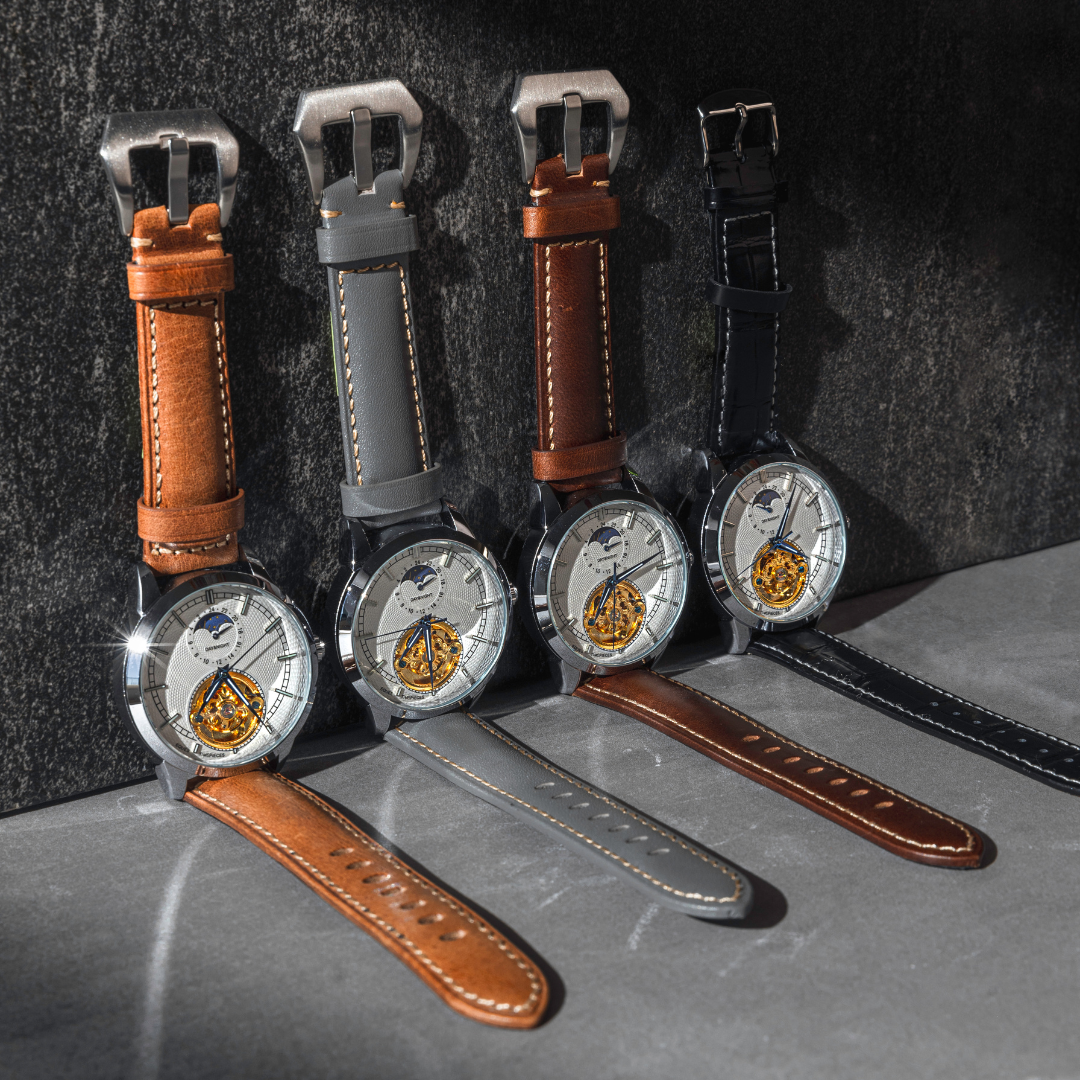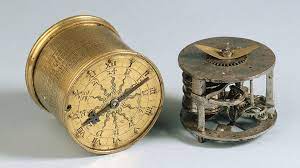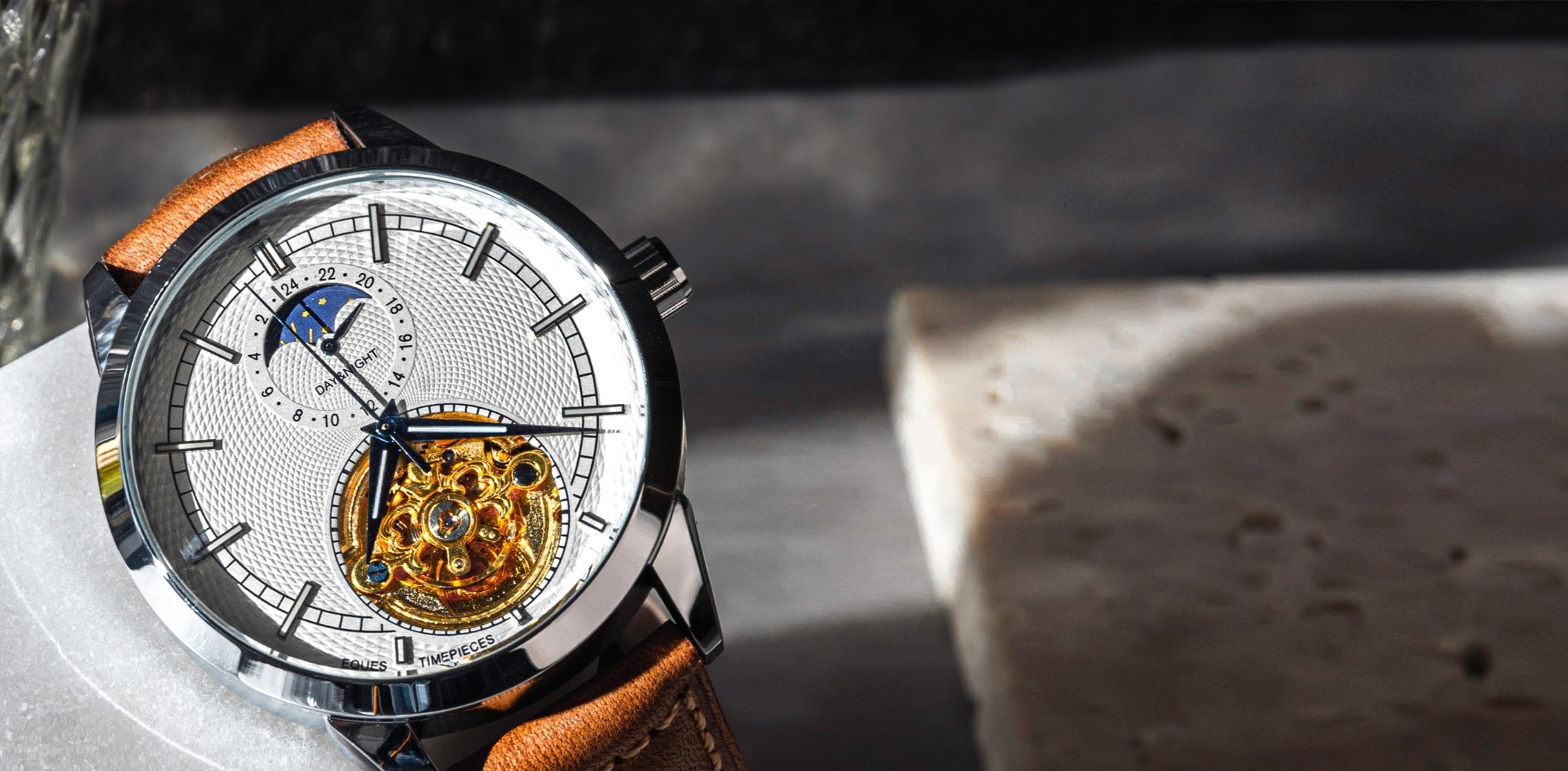The world of timekeeping offers a diverse range of options, with automatic and battery-powered watches standing out as two popular choices. Each type has its unique advantages and appeals to different preferences and lifestyles. In this guide, we’ll explore the key differences between automatic and battery watches, unraveling their mechanisms to help you choose the perfect timepiece for your needs.
Understanding Automatic Watches
Automatic watches, also known as self-winding watches, are powered by the natural motion of the wearer’s wrist. These timepieces feature a rotor that captures kinetic energy from wrist movements, winding the mainspring to store energy and keep the watch running. This means that as long as you wear the watch regularly, it stays powered without requiring manual winding or battery replacement.
What makes automatic watches truly special is their connection to traditional mechanical movements. The mesmerizing sweeping motion of the second hand and the intricate craftsmanship involved in their design highlight the artistry of watchmaking. Automatic watches are more than just timekeepers; they’re a celebration of engineering and heritage.
Understanding Battery Watches
Battery-powered watches, often referred to as quartz watches, use a battery as their energy source. These watches rely on a quartz crystal to regulate timekeeping by generating electrical pulses that drive the movement. Known for their precision and reliability, quartz watches require minimal maintenance and deliver consistent accuracy.
One of the significant advantages of battery watches is their convenience. The batteries typically last for several years, making them a hassle-free option for those who want reliable performance without frequent upkeep. Quartz watches are practical, durable, and ideal for everyday use.
Weighing the Pros and Cons
When deciding between an automatic and a battery-powered watch, consider the following factors:
Automatic Watches
- Pros:
- Embody tradition, craftsmanship, and the art of mechanical watchmaking.
- Feature a sweeping second hand for a refined and classic look.
- Powered by wrist motion, eliminating the need for batteries.
- Cons:
- Require regular wearing to maintain power or occasional manual winding.
- May need periodic servicing to ensure optimal performance.

Battery Watches
- Pros:
- Offer exceptional accuracy and reliability.
- Require minimal maintenance, with battery replacements needed only every few years.
- Ideal for those seeking a convenient, no-fuss timepiece.
- Cons:
- Lack the mechanical charm and sweeping second hand of automatic watches.
- Do not have the same connection to traditional watchmaking craftsmanship.

Conclusion
The choice between an automatic and a battery-powered watch ultimately depends on your preferences and lifestyle. If you value tradition, artistry, and the romantic notion of a self-powered timepiece, an automatic watch might be your ideal companion. On the other hand, if you prioritize precision, convenience, and low maintenance, a battery-powered watch is a reliable and practical choice.
Whichever you choose, both types offer their unique appeal, ensuring you’ll find a timepiece that perfectly aligns with your needs and style.
